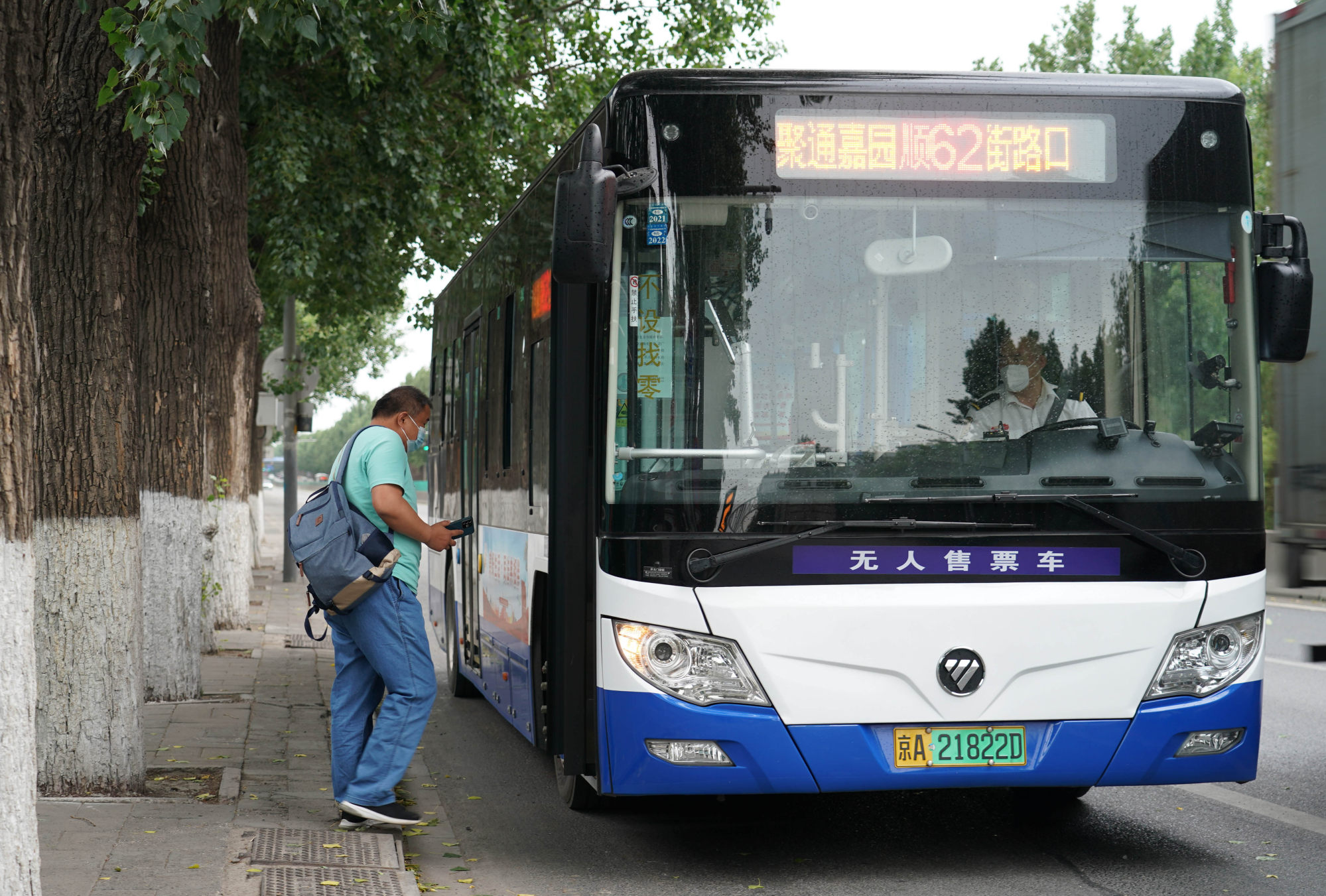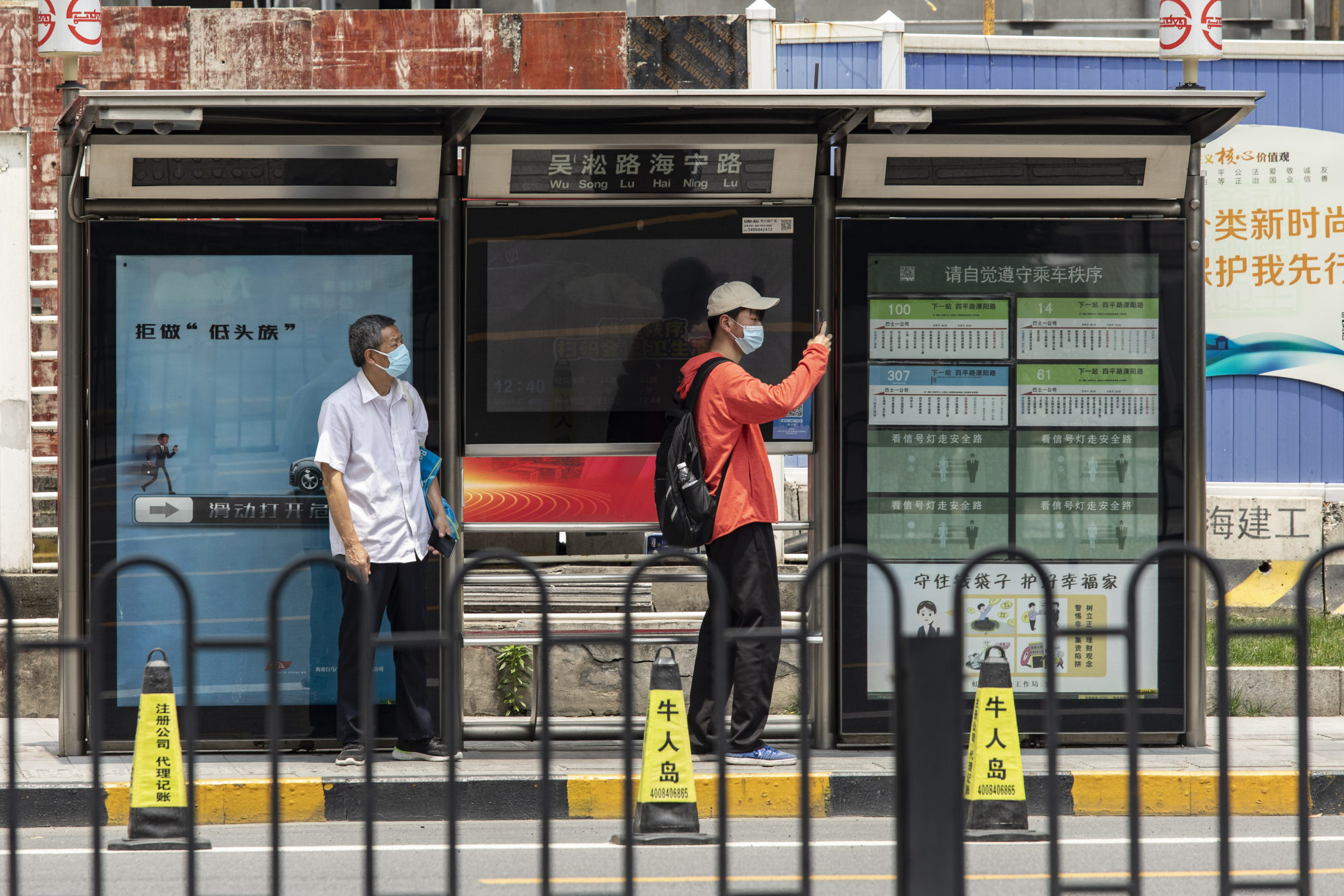
China coronavirus: ‘you expire in 3 days’ restrictions and negative test proof requirements hit daily life hard
- China’s tough policy on containing Covid-19 continues to hinder residents’ daily lives as dark humour abounds
- Residents in at least 50 cities now need to take regular PCR tests every 48 to 72 hours to meet strict requirements by local authorities
“A piece of tofu expires in five days, while you expire in three”; so goes one of the most popular jokes currently doing the rounds in mainland China.
The joke refers to the three-day validity period of a person’s negative Covid-19 test result; essential for people who want to use public transport or enter public spaces in major cities across the country.
Without proof of a negative polymerase chain reaction (PCR) test, a person is regarded as functionally dead, socially speaking, as those without proof of a negative test are banned from the metro, buses, taxis, office buildings, shopping malls, restaurants and other public venues.

Residents in at least 50 cities now need to take a PCR test, which is jokingly referred to as “refreshing their shelf life”, every few days so they can provide a test result within 48 to 72 hours as required by local authorities to identify new infections as soon as possible.
Lin Xiaoping, a Shanghai-based accountant, said she was forced to take leave for a day last week because she missed getting a PCR test.
“I went to the testing booth near my home after having dinner. There were so many people lining up that when it was my turn it was already closed,” she said.
“The weather is getting hot and it is so annoying that you have to stand in the queue to do this every few days,” she complained.
Authorities hope that frequent tests will help them catch outbreaks as early as possible so as to avoid the traumatic lockdown that Shanghai endured during April and May.
Love crime: woman poses as young wealthy heiress to keep boyfriend from leaving
There is currently no time frame for when the constant swab testing will end.
This new normal is especially difficult for elderly people, who are often unfamiliar with smartphones, the device widely used for showing identification for testing and health codes which are updated after the test result is available.
“It used to be my routine to go to parks, visit food markets, take buses to the hospital, but now I’d rather stay home as much as possible. It’s just too much trouble,” said Su Limin, a woman in her 70s in Beijing.
Already a test results black market has emerged as many people struggle to keep up with regular testing requirements.
Earlier this month, Shanghai police detained at least six people who offered to do the test for others or paid others to do it for them.

One of them, a carpooling driver who can only work with a negative result every 48 hours, gave his identity information to a neighbour and asked him to queue up and take the test instead to save time, the Jiading district government said in a press release.
“I am confident I won’t test positive,” he told police officers after the deception was discovered by other people queuing up for testing.
Some local governments are taking extraordinary steps to ensure residents get tested in time.
The government of Siping city in northeastern China’s Jilin province rescinded a highly controversial order issued on May 30 that people who missed two mass tests organised by the city would be imprisoned for 10 days and fined 500 yuan (US$75).
They would also be named and shamed in the media and would face difficulties boarding trains or checking into hotels, according to the directive, which triggered a public backlash.
What next for China’s zero-Covid policy after Shanghai?
Zhao Hong, a professor from the School of Law at the China University of Political Science and Law, noted that such orders were illegal.
She said under the provisions of Chinese law, they “were legally groundless and besmirched personal dignity” in an article published on a WeChat account run by the university on Thursday last week.
She also expressed concern over the huge financial costs and labour required to normalise testing on such a massive scale.
So far both volunteer tests at streetside booths and mandatory government-organised mass tests on designated days are paid for from public funds.
“But no local government has so far given details about this expense. It’s unknown whether it’s within their budgets, and it’s hard for the public to scrutinise this,” Zhao said.

